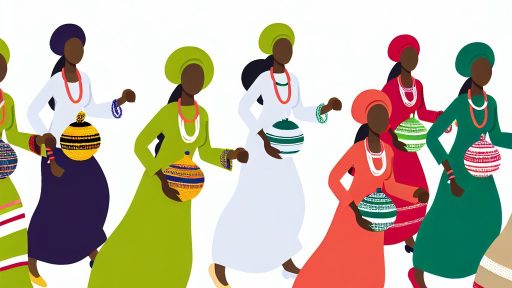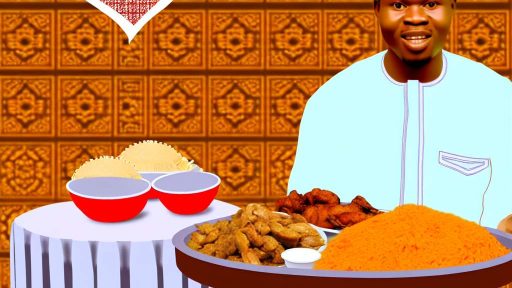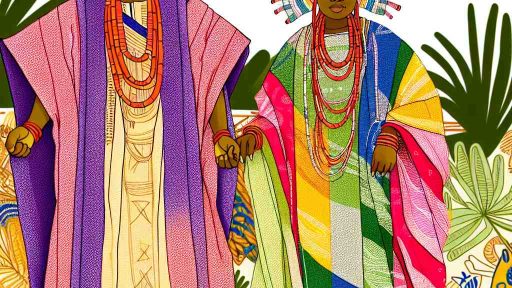Cultural Insights
Cultural Insights into Marriage in Nigeria
Marriage in Nigeria is rich with cultural diversity and traditions.
Each ethnic group in Nigeria has unique customs that make weddings special.
Understanding these traditions provides deeper insight into Nigerian culture.
Traditional Nigerian Marriage Customs
1. Yoruba Marriage Customs
Yoruba weddings are vibrant and colorful.
The engagement ceremony, known as “Introduction,” is crucial.
Key Elements:
- Introduction Ceremony: Families formally meet and discuss marriage.
- Bride Price: The groom’s family presents gifts to the bride’s family.
- Engagement Ceremony: Includes prayers, singing, and traditional rites.
2. Igbo Marriage Customs
Igbo weddings are elaborate and filled with rituals.
The traditional wedding is called “Igba Nkwu” (wine carrying).
Key Elements:
- Introduction Ceremony: Families meet and agree on marriage terms.
- Bride Price Negotiation: The groom’s family negotiates and pays the bride price.
- Wine Carrying Ceremony: The bride presents wine to her groom.
3. Hausa Marriage Customs
Hausa weddings are influenced by Islamic traditions.
The ceremony is simple yet significant.
Key Elements:
- Introduction (Gaisuwa): Families meet and seek blessings.
- Bride Price (Sadaki): A symbolic amount is paid.
- Wedding Fatiha: An Islamic legal ceremony is performed.
Modern Influences on Nigerian Marriages
1. Blending Traditions
Modern Nigerian weddings often blend traditional and contemporary elements.
Couples incorporate both their cultural heritage and modern practices.
Examples:
- Traditional Attire: Couples wear traditional outfits for ceremonies.
- White Wedding: A church or registry wedding often follows the traditional one.
- Reception: Modern receptions include music, dancing, and cutting of the cake.
2. Destination Weddings
Destination weddings are becoming popular among Nigerian couples.
They choose exotic locations for their nuptials.
Popular Destinations:
- Beach Resorts: Many couples opt for beachside weddings.
- Foreign Countries: Some choose to marry abroad for a unique experience.
- Historic Sites: Historic locations provide a picturesque backdrop.
3. Technology and Social Media
Technology plays a significant role in modern Nigerian weddings.
Social media and digital tools enhance the wedding experience.
Uses of Technology:
- Wedding Websites: Couples create websites for their events.
- Live Streaming: Weddings are streamed for distant relatives.
- Social Media: Couples share their journey online.
Cultural Significance of Marriage in Nigeria
1. Community Involvement
Marriage in Nigeria involves the community.
Family, friends, and neighbors play active roles in the ceremonies.
Community Roles:
- Support: Community members support with planning and logistics.
- Participation: They actively participate in ceremonies and celebrations.
- Gifts: Guests present gifts to the couple.
2. Preservation of Heritage
Marriage customs help preserve cultural heritage.
They pass down traditions from one generation to the next.
Preservation Methods:
- Oral Traditions: Elders share stories and customs.
- Rituals: Traditional rituals are performed during weddings.
- Cultural Attire: Wearing traditional clothing maintains cultural identity.
3. Strengthening Family Bonds
Marriage strengthens family bonds.
It unites two families and fosters stronger relationships.
Family Dynamics:
- Unity: Families come together to support the couple.
- Respect: Marriage ceremonies emphasize respect for elders.
- Collaboration: Families collaborate to ensure successful events.
Conclusion
Marriage in Nigeria is a blend of rich traditions and modern influences.
Each ethnic group brings unique customs that make Nigerian weddings diverse and colorful.
Understanding these cultural insights provides a deeper appreciation for Nigerian marital practices.
Whether blending traditions or embracing modern trends, Nigerian weddings remain a celebration of love, family, and heritage.









